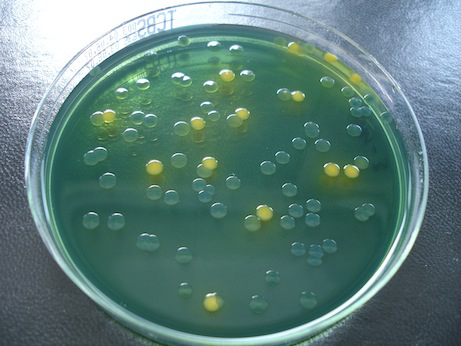During the summer of 2012 two separate shellfish-associated outbreaks of illness in humans occurred in New York and Northwest Spain. Both outbreaks were caused by a bacterium called Vibrio parahaemolyticus, a bacterium common in marine and estuarine environments. Previously, Vibrio parahaemolyticus serotypes O4:K12 and O4:KUT (termed Pacific Northwest or ‘PNW’ strains) were considered unique to the Pacific Northwest region, but have subsequently been identified in the Atlantic, according to an article published in the Oct. 17 issue the New England Journal of Medicine.
The study, led by scientists from Cefas, the European Centre for Disease Prevention and Control (ECDC) and its American counterpart (CDC), and the USA’s Food and Drug Administration (FDA) demonstrated that the strains causing near simultaneous outbreaks on both sides of the Atlantic appear to be identical, a finding never seen before. Vibrio parahaemolyticusinfections are rare in Europe but the two 2012 outbreaks suggest the potential global movement of these bacteria, which could be significant from a public health perspective. The PNW Vibrio strains appear to be particularly virulent at much lower doses, compared to other pathogenic variants. These strains are genetically and biochemically distinct, with a unique “finger print”. Pathogenic strains normally carry one of two virulent genes (referred to as tdh+ and trh+) and very rarely carry both genes. The 2012 analysed strains contained various combinations of both of these genes – something never seen before in Europe. Current work involves the analysis of isolated strains from European water and shellfish samples (see inset) to determine if these pathogens have persisted into 2013.

